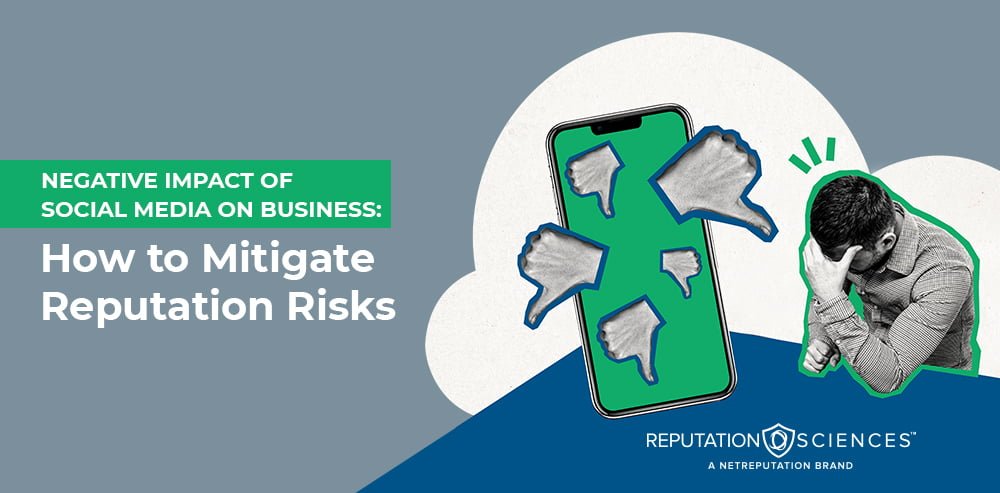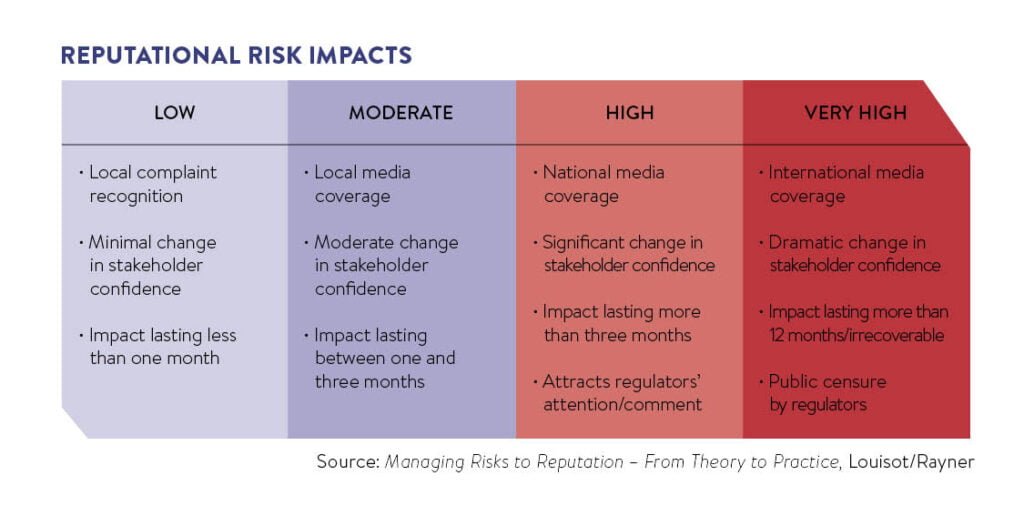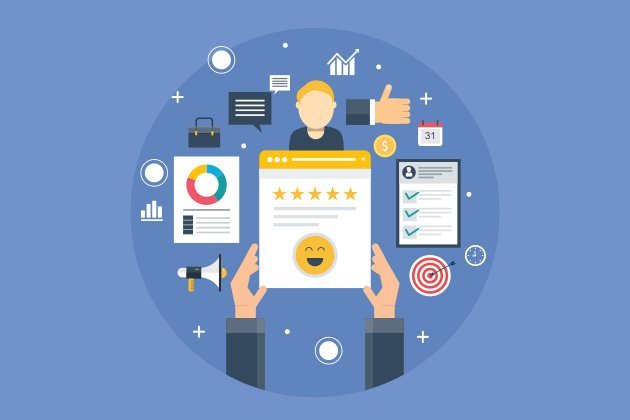Have you ever wondered how social media could impact your business reputation and liability risks? In today’s digital age, the power of social media is undeniable. From glowing reviews to negative feedback, the way your business is perceived online can significantly influence its success. As you navigate the complexities of managing your business, it’s crucial to understand how social media shapes your company’s reputation and the potential liability risks that accompany it.

The Influence of Social Media on Business Reputation
Understanding Reputation Management
Reputation management is all about how your business is perceived by the public. With the rise of social media, you have a platform where feedback is immediate, public, and often as impactful as traditional marketing efforts.
When a customer has a great experience, they are more likely to share it online. Conversely, a single negative comment can spread like wildfire. This means that maintaining a positive reputation on social media is essential for attracting and retaining customers.
Real-Time Feedback and Customer Engagement
Social media allows your business to receive direct feedback from customers. Whether through comments, reviews, or direct messages, feedback can be both a gift and a curse. The ability to interact with customers in real time presents opportunities to address concerns promptly and showcase exceptional customer service.
You should consider implementing a strategy for engaging with your audience. Regularly monitoring your social media channels can help you respond to inquiries and negative comments swiftly.
The Viral Nature of Social Media
One negative post or tweet can go viral, potentially damaging your reputation. If a dissatisfied customer shares their experience widely, the repercussions can spread far beyond the original complaint. It might be beneficial to have a crisis management plan in place to handle potential backlash through social media.
For example, if a criticism arises, demonstrating how you handle the situation publicly can turn a negative experience into a positive one. Transparency is key!
Liability Risks Associated with Social Media
Understanding Liability Through an Online Lens
Your business can face various liability risks stemming from social media activity. These risks arise not only from customer interactions but also from the content your company shares or endorses online.
Consider your shared content: Are you using copyrighted material? Have you given opinions about competitors that could lead to legal repercussions? You must ensure your content adheres to legal standards and ethical practices.
Defamation Risks
Defamation claims can arise if false statements about an individual or business are made, including on social media platforms. If an employee shares a defamatory comment about a client, it could lead to legal actions against your business.
Training your employees to handle social media responsibly and understanding the legal implications of their posts will minimize these risks.
Privacy Violations
With the increasing scrutiny surrounding personal data online, your business must prioritize privacy. Misusing customer data collected through social media can lead to serious liability issues.
You need to educate yourself and your team about data protection regulations, such as the General Data Protection Regulation (GDPR), to ensure compliance and protect your business from potential lawsuits.
The Evolution of Professional Liability Insurance
Understanding Professional Liability Insurance
Changes in Coverage With Social Media Integration
As social media becomes a critical component of business operations, traditional professional liability policies may not cover social media-related risks. You may need to enhance your policy to include protection against liabilities stemming directly from digital interactions.
Discussing your unique business needs with an insurance professional can ensure you’re adequately covered.
Clarifying Coverage Limitations
Many believe that general liability insurance covers all risks associated with running a business, including those stemming from social media interactions. In reality, general liability often excludes professional errors and communications made online.
Understanding the difference and knowing what your policy covers helps in making informed decisions about your insurance needs.
Misbeliefs Around Coverage Cost
Some business owners think professional liability insurance is overly expensive and only necessary for large companies. This belief can lead to significant financial loss in the event of a claim.
In truth, professional liability insurance is a vital safeguard for businesses of all sizes. The costs can vary based on several factors, and seeking quotes from different insurers helps in finding suitable options.

How Professional Liability Differs from General Liability
Key Differences in Coverage
Understanding how professional liability insurance differs from general liability is crucial for making informed decisions about your coverage. General liability insurance generally covers physical injuries and property damages, while professional liability focuses on services provided or advice given.
If you’re in a field relying heavily on advisory services, having robust professional liability coverage is key to protecting your business.
Coverage for Errors and Omissions
Professional liability specifically addresses errors and omissions in the services you offer. In contrast, general liability might not protect against claims stemming from your business advice or the accuracy of your services.
Evaluating your business’s specific needs can guide you in determining which type of coverage is necessary.
The Role of Professional Liability in Business Continuity
Maintaining Operations Even in Crisis
Having professional liability insurance is essential in ensuring that your business can continue to operate even in the face of claims. This insurance can help cover legal fees, settlements, and other expenses, allowing you to focus on maintaining daily operations rather than being tied up in litigation.
Risk Management as a Business Strategy
Incorporating risk management strategies into your operations will enhance your ability to be proactive rather than reactive in the face of potential claims. Ensuring your employees understand their roles in risk management can support a culture of accountability and awareness.

How to Evaluate Your Need for Professional Liability Coverage
Assessing Business Risk
To determine whether you need professional liability coverage, evaluate your business operations critically. Consider your services: How likely is it that a misunderstanding or error could lead to a claim?
Growing businesses often face evolving risks, so regular assessments of your insurance needs will help you stay covered as your business evolves.
Industry Standards and Practices
Investigate the standard liability coverage within your industry. Industry peers might offer insights into what levels of coverage are common and necessary. This information can create a benchmark for evaluating your own business policies.
Tailoring Liability Insurance for the Tech Industry
Unique Challenges for Tech Companies
Tech companies face distinct liability risks due to the nature of their services, including issues around cybersecurity, data breaches, and software performance. Tailoring coverage for these realities is essential.
Your liability insurance should address potential ethical and compliance issues relevant to technology, ensuring you’re protected against unique risks.
Cyber Liability Coverage
As digital threats grow, having specific cybersecurity insurance coverage has never been more necessary. This insurance addresses risks related to data breaches and online fraud, making it particularly relevant for tech firms operating in online spaces.
Consulting with an insurance expert who understands the tech industry’s nuances can help ensure your policy properly addresses these risks.
Professional Liability Needs for Healthcare Providers
Navigating Healthcare Regulations
Healthcare providers face one of the highest liability risks due to their direct impact on patient lives. It’s essential for professionals in this field to have comprehensive professional liability coverage that meets the industry’s regulatory requirements.
Malpractice Insurance Importance
For healthcare providers, malpractice insurance is necessary, covering legal costs and potential settlements arising from professional errors or negligence claims. Regularly updating this coverage ensures you’re prepared for evolving legal landscapes and patient expectations.
Insurance Challenges in the Construction Sector
Understanding Unique Construction Risks
The construction industry faces distinct liability challenges, including defects, workplace injuries, and contractual obligations. Understanding how these elements influence your professional liability insurance is crucial for risk mitigation.
Comprehensive Coverage Considerations
When tailoring coverage to the construction sector, ensure that your policy addresses not just general risks but also subcontractor performance and compliance with safety regulations. This comprehensive approach is vital in protecting your business from potential claims.

Legal Professionals: Unique Insurance Considerations
Specific Liabilities for Law Firms
Lawyers face unique liability risks, primarily related to malpractice claims and breaches of professional conduct. Coverage must be tailored to address areas like client interactions and miscommunications.
Understanding Client Confidentiality Risks
Legal professionals must also understand risks associated with client confidentiality. A breach could lead to significant liability claims, emphasizing the need for coverage that aligns closely with legal standards protecting client information.
Protecting Financial Advisors
Compliance with Regulations
Financial advisors must adhere to strict regulatory standards. Adequate insurance coverage will support compliance and protect against the financial repercussions of potential claims.
The Impact of AI on Professional Liability Policies
Emerging Challenges and Opportunities
The rise of artificial intelligence creates both opportunities and challenges for businesses seeking liability insurance. As technology evolves, liability policies must adapt to new risks associated with AI-driven processes and decision-making.
Understanding Software Liability
Software and service providers using AI may face unique challenges if their products inadvertently cause harm or lead to misinterpretations. Customizing your professional liability insurance to include these scenarios will be paramount moving forward.
Cybersecurity Threats and Their Influence on Insurance Needs
Addressing the Growing Data Breach Risk
Cybersecurity threats continue to rise, putting pressure on businesses to secure their data and protect their customers. You should evaluate whether your current policies sufficiently cover these escalating risks.
Innovations in Cyber Liability Insurance
With the growing landscape of data breaches, firms must understand cyber liability insurance options better. This evolving coverage can protect against the fallout from data breaches, ensuring you’re safeguarded in this digital era.
How Climate Change Affects Liability Risk Assessments
Evolving Risk Considerations
As climate change continues to impact various industries, businesses need to reassess their liability risks. Extreme weather events can disrupt operations and create liability concerns related to safety standards and environmental regulations.
Building Resilience into Risk Management
Understanding how climate impacts your business can enhance the resilience of your risk management strategies. Regular evaluation of environmental risks can prepare your organization for potential claims arising from climate-related incidents.
Social Engineering: A Growing Concern for Insurers
Understanding Social Engineering Risks
Social engineering refers to manipulating individuals into divulging confidential information. Organizations should remain vigilant and train employees about potential scams that could compromise security and lead to liability claims.
Employee Training and Awareness
Training and awareness programs about social engineering scams can significantly reduce your organization’s risk. Ensuring all team members understand how to identify and report suspicious activities creates a more secure business environment.
Navigating the Hard Market in Professional Liability
Recognizing the Hard Market Phenomenon
In a hard insurance market, obtaining coverage becomes more challenging as premium rates increase and policy terms become stricter. Understanding this environment will help you navigate obtaining the necessary coverage for your business.
Strategic Planning for Coverage Needs
As the market fluctuates, regularly reviewing your policies allows you to remain proactive in understanding risks and adjusting your coverage accordingly. Consult with an experienced broker who can offer insights into the evolving landscape.
Lessons from High-Profile Professional Liability Lawsuits
Analyzing Industry Cases
Examining high-profile lawsuits can provide valuable lessons in navigating professional liability. Understanding the circumstances and implications of these cases can inform your risk management strategies.
Taking Preventive Actions
Learning from the missteps of others can inspire preventive actions within your organization. Clear communication, thorough documentation, and client engagement can mitigate potential risks.
How Large Corporations Manage Their Liability Risks
Risk Management Strategies
Large corporations often have dedicated teams managing liability risks to ensure compliance with regulations and standards. If your organization is smaller, consider developing a similar approach to effectively manage risks.
Utilizing Data-Driven Risk Assessments
Corporations often utilize data-driven insights when assessing their liability. Exploring how data can inform your risk assessment may strengthen your policy and improve your overall risk management.
Case Study: Successful Claims Mitigation Strategies
Real-World Examples Provide Insights
Real-world case studies showcasing successful claims mitigation can be incredibly beneficial. Analyzing how other businesses have navigated complex claims can illuminate effective strategies tailored to your industry.
Implementing Best Practices
By adopting best practices highlighted in successful case studies, you can build a stronger defense against potential claims. Regular evaluations and updates to your practices can ensure your strategies remain relevant.
The Financial Impact of Negligence Claims on Small Businesses
Understanding the Stakes
For small businesses, a negligence claim can be financially devastating. It’s vital to understand the potential financial impacts and include adequate coverage in your liability insurance.
Risk Management to Mitigate Impact
Mitigating risks through comprehensive insurance, staff training, and effective communication with clients can safeguard your business financially. Proactive planning is essential to avoid potential negligence claims.
Learning from Past Mistakes
Developing Your Response Plan
With insights gained from others, developing your response plan addresses potential vulnerabilities head-on. Knowing how to react during a claim can make all the difference in protecting your business.
Every interaction and piece of content shared on social media significantly influences your business reputation and liability risks. Understanding and managing these elements can enhance your business’s resilience in an ever-evolving digital environment. Prioritizing engagement, transparency, and adequate coverage can ensure your enterprise thrives while mitigating potential risks effectively.